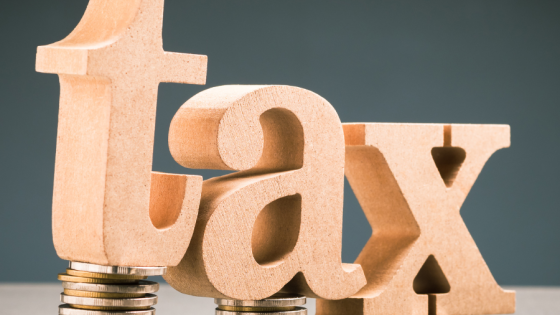Taxation of Virtual and Cryptocurrencies
27 Feb 2018
What are Cryptocurrencies and how are you taxed on them?Categories & Tags
In our last crypto blog we introduced you to the basics of blockchain. The next step is to understand the main assets of any blockchain, these being the cryptocurrencies themselves. The most notable cryptocurrency is of course Bitcoin, but there are many others picking up steam, such as Ether (based on the Ethereum Blockchain), Ripple, Tron and Litecoin.
The question we are commonly asked by our clients is ‘Do I need to pay tax on my cryptocurrency gains?’ The answer as always is ‘It depends!’ Let’s explore that notion a bit further.
<b>Legal Status</b>
Firstly, every tax jurisdiction globally is setting its own guidelines in respect of how cryptocurrencies should be taxed. Most jurisdictions therefore start by determining the ‘legal’ status of such currencies, in other words, whether or not they should be regarded as legal tender.
Another question is whether all cryptocurrencies should be treated in the same way – if the characteristics of two different currencies are materially different, should they be accorded the same legal treatment and therefore the same tax treatment?
In economic terms, money is identified by the way it plays a role in our everyday lives, paying particular attention to whether or not:
• It is regarded as a store of value with which to transfer ‘purchasing power’ (i.e. the ability to buy goods and services) from the present or to some future date.
• It is a medium of exchange with which to make payment
• It is a unit of account with which to measure the value of any particular item that is for sale
The Bank of England considers that cryptocurrencies, in their current format, fulfil the role of money to some extent but only for a small number of people.
Looking further afield, and in the case of Bitcoin, Finland or Sweden neither regard it as a currency, whereas in Germany it is regarded as a ‘unit of account’. It is not regarded as legal tender in a number of countries.
<b>Taxation </b>
With the legal status now being determined, the approach taken by a number of tax authorities with regard to the tax treatment of cryptocurrencies is to follow the legal/economic characteristics of the asset in question.
To share a global perspective, the Canada Revenue Agency (CRA) does not regard cryptocurrencies as legal tender. Instead, if two people exchange goods or services for payment in say Ether, the CRA treat is as a barter transaction i.e. as if no money has changed hands. In essence, the transaction would be treated as a capital gain or loss.
The Australian Tax Authority take a very similar viewpoint, their view also being that Bitcoin (for instance) is not money or a foreign currency.
<b>UK Tax Treatment</b>
HMRC released guidance notes in 2014, a summary of which is provided below.
Firstly, HMRC considers that cryptocurrencies have a unique identity, meaning each transaction needs to be looked at on a case by case basis.
For example, if a transaction is highly speculative, it may not be taxable (and losses therefore not allowable) and could refer specifically to gambling or betting wins, which are usually not taxable. This will very much depend on the regular behaviours and habits of the individual.
In determining whether or not a transaction is subject to direct taxes, that is income tax, capital gains tax, corporation tax, it’s the nature of the transaction that will determine the tax treatment. For instance, a sale or disposal made for Bitcoin should be analysed by reference to the nature of the activities, what is being sold or disposed of, the behaviour of the individual or entity performing the transaction, and the status of the parties. So there is quite a bit to be considered before answering the question ‘Do I need to pay tax on my cryptocurrency gains?’
At this stage, HMRC have not identified the need to define bespoke rules for cryptocurrency transactions, and state that all transactions should be considered in line with the general treatment rules on foreign exchange and loan relationships.
For a sole trader or partnership that makes sales in exchange for Bitcoin or Ether in the course of its trade, profits will be subject to income tax and NI, with accounts being prepared in line with UK GAAP i.e. by following the accounting standard pertaining to reporting of FOREX transactions.
To take this further, in considering corporation taxes, FRS102 would require the limited company trade to firstly translate the FOREX transactions (i.e. the sales) into say Sterling, using the spot exchange rate (or an average for the week or month if the exchange rate does not fluctuate significantly) and then at the end of the reporting period, translate foreign currency monetary items at the exchange rate applicable at that time. Any exchange rate so used by the business would be acceptable for tax purposes.
If instead the business was holding Bitcoin as an investment (i.e. it had entered into a single or a few irregular transactions) and subsequently made a disposal, the transaction would likely be subject to capital gains tax. This takes the form of a typical barter transaction, with the CGT being calculated with reference to the Sterling equivalent of the Bitcoin on the day of disposal.
In the situation where the business is not unincorporated and were a company, and therefore paying corporation tax, HMRC have provided brief guidance as to how the transaction should be reflected in the company’s accounts. In essence, there are no special tax rules and ordinary analysis should apply.
Mining as part of a business would see the entity paying 19% corporation tax on its profits from mining activities (a description of mining activities in a cryptocurrency sense is outside the scope of the article).
<b>Other UK Taxes</b>
HMRC has not released any specific guidance on how cryptocurrencies should be treated in respect of Stamp Duty taxes, however there are some readily available briefing notes in respect of whether or not SDLT or SDRT should apply.
<b>VAT</b>
To date, VAT is the only tax that has received any judicial consideration in its application with regard to virtual currencies.
HMRC considers that:
• Mining activities (that is authenticating blockchain transactions and maintaining the ‘chain’ data) generally fall outside of the scope of VAT, as there is no ‘economic’ activity for VAT purposes
• Activities other than mining are exempt
It also states that no VAT is due when cryptocurrencies are converted to fiat currencies (that is Sterling, Dollars and so on). Any transaction charges are also exempt from VAT.
However, where good or services are supplied in consideration for cryptocurrencies, the fact that the consideration is not in fiat has no impact on how the goods or services should be analysed for VAT purposes. That is to say, is your goods or services are standard rated supplies for VAT, the fact your business is receiving compensation in cryptocurrency does not alter the VAT treatment.
<b>USA</b>
The IRS considers crypto to be ‘property’. In a legal sense, this would mean that any crypto investments would be subject to capital gains tax, depending on how long the crypto has been held before it is sold. Short term investments (less than one year) would see a higher capital gains tax charge, this typically being an individuals’ marginal (highest) rate of tax. For US tax payers who cash out their crypto investments after more than one, they will be subject to longer term capital gains tax rates of 0%, 15% or 20% depending on their tax bracket. The Cryptocurrency Fairness in Taxation Act (CFTA) is currently being debated in US congress. This would seek to exempt from tax all transactions under $600.
There was previously some debate as to whether or not crypto to crypto trades would be treated as ‘like for like’ meaning no tax would be due. It has now been clarified that tax is due, meaning all US tax payers will need to keep proper records of all such trades made in a tax year, and pay tax accordingly.
As cryptocurrencies become more widely available and become the consumer currency of choice, no doubt every tax jurisdiction will begin to regulate and provide judicial guidance on how the likes of Bitcoin and Ether should be treated in the future. Until then, we will watch with interest and support our clients wherever possible in helping them to understand the accounting and tax implications of their cryptocurrency transactions.
News & Resources

Tax returns for a deceased taxpayer
More

What if you no longer need to submit a tax return
More

Claiming for uniforms, work clothing and tools
More

When do the higher rates of Income Tax apply
More

Who must send in a tax return
More

Tax rules for savings interest
More

Private Residence Relief – when it applies
More

Do not forget to claim the marriage allowance
More

